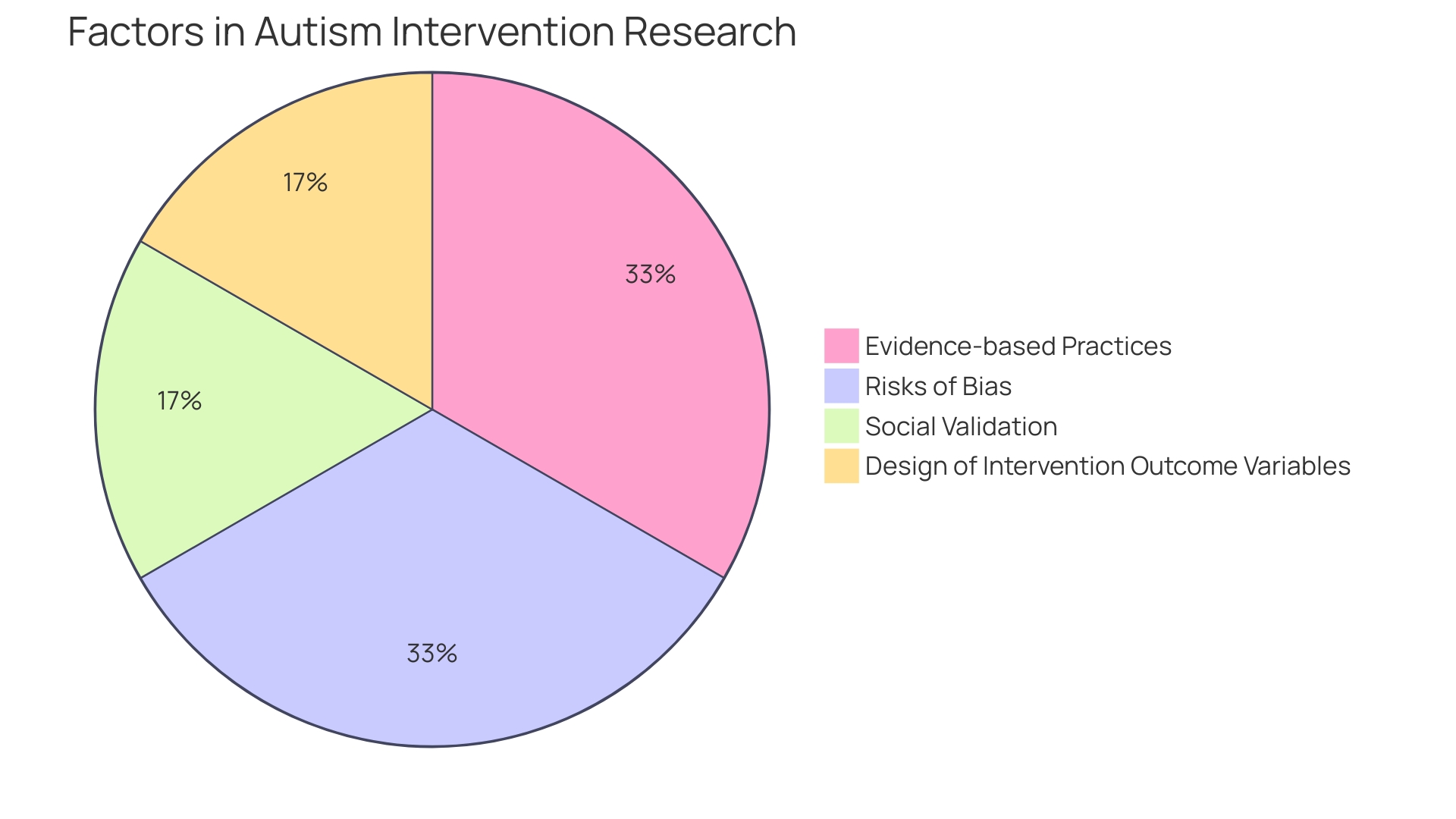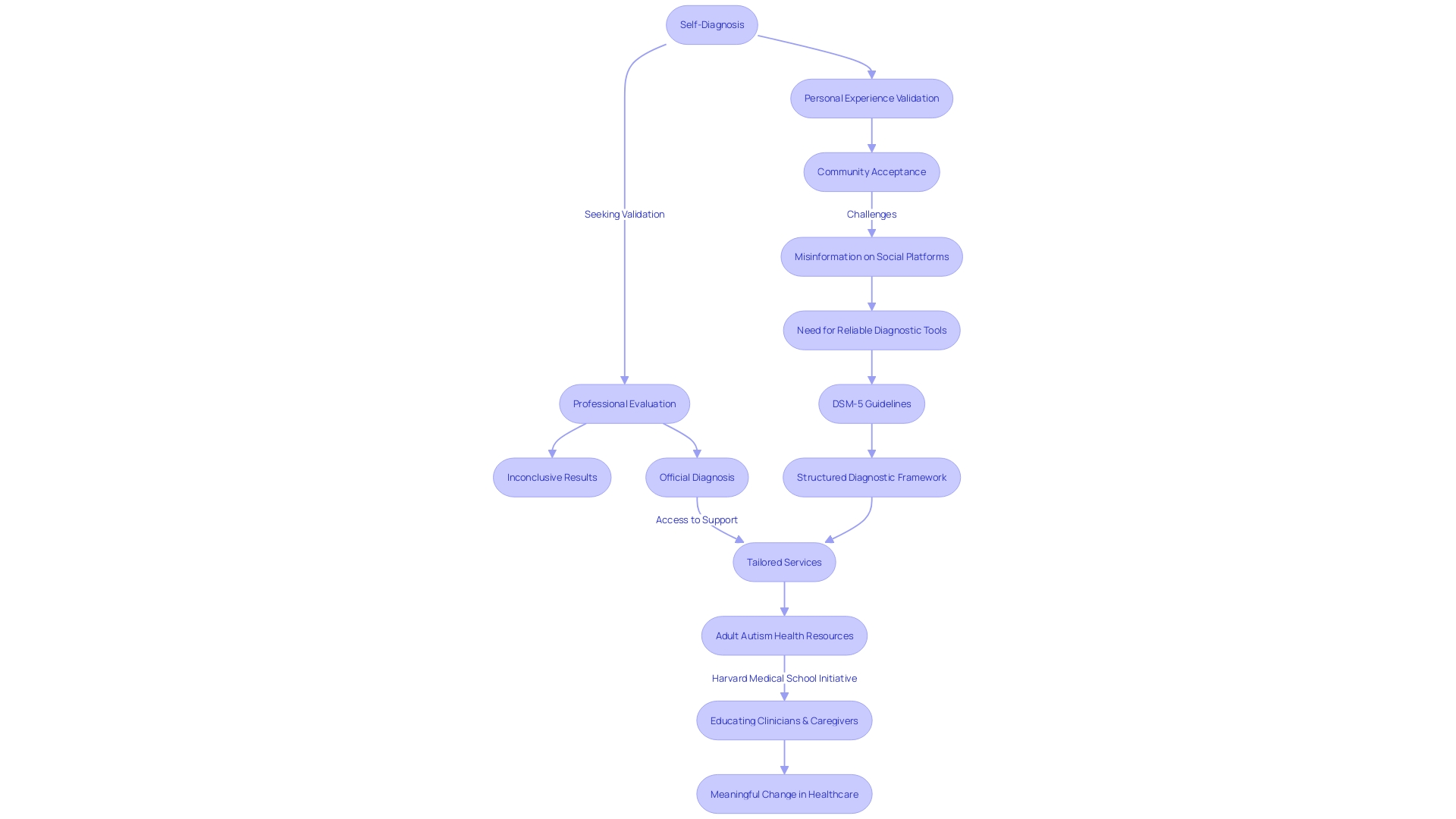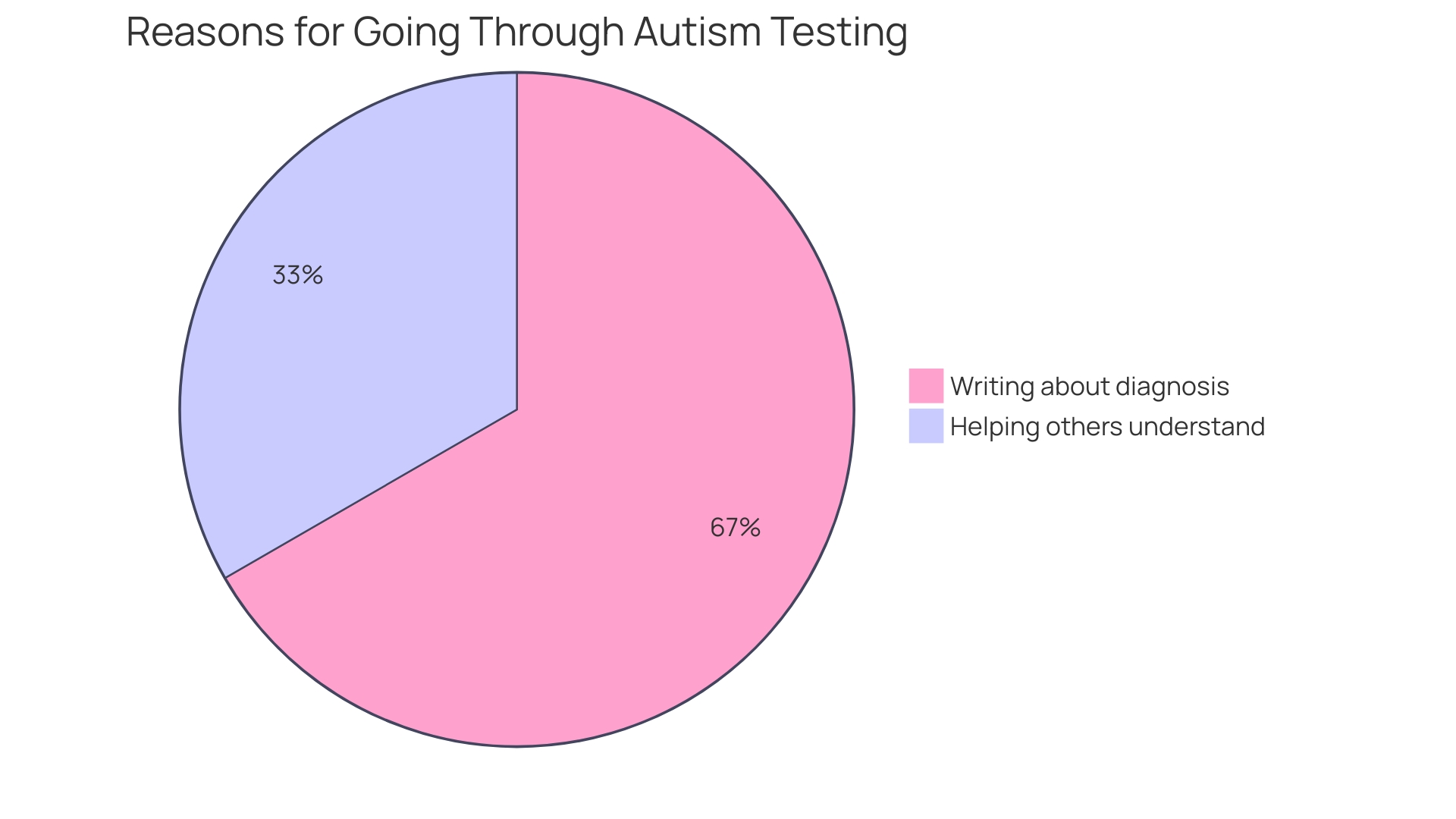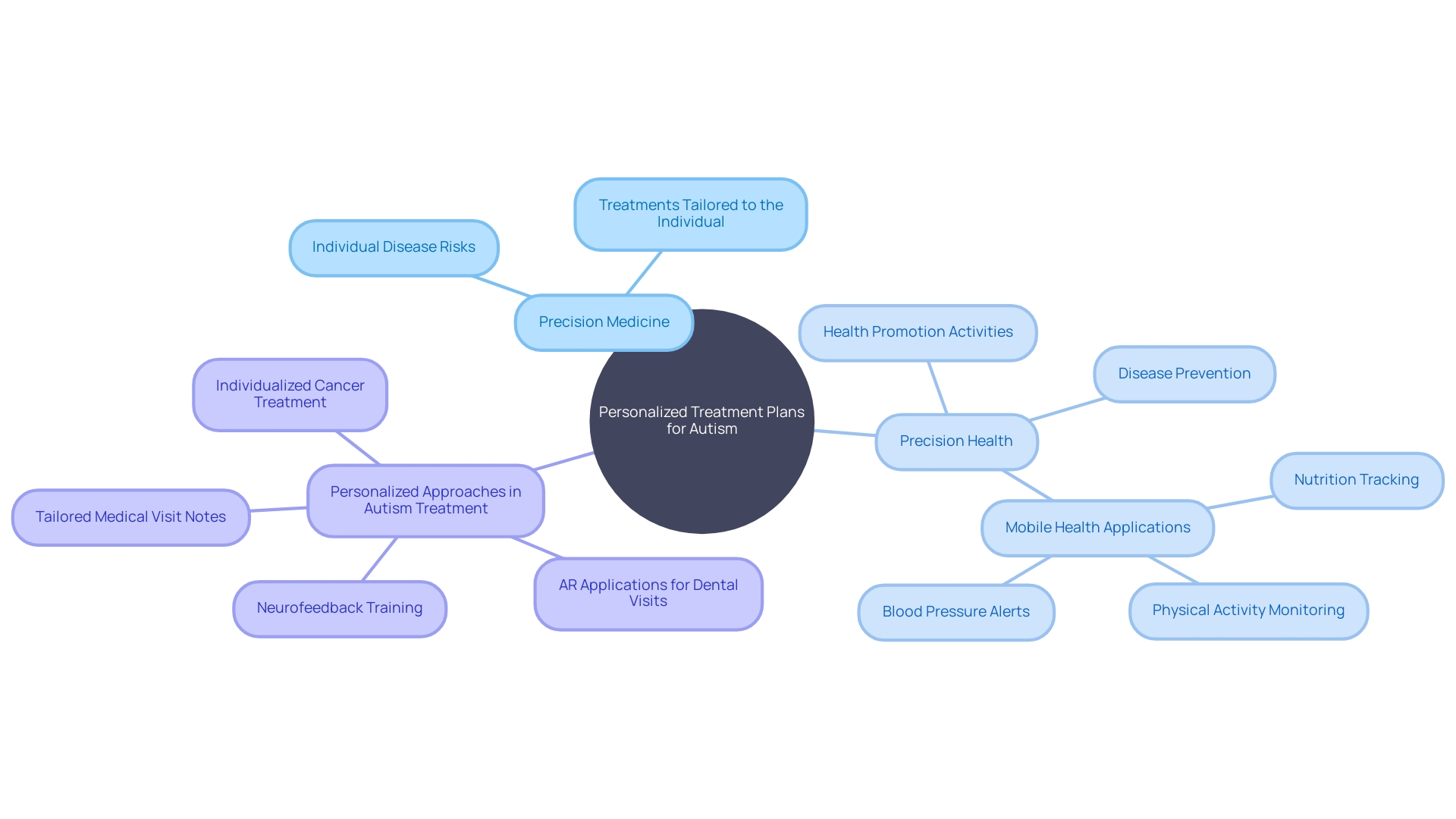Introduction
The journey to diagnosing autism in adults, particularly women, is complex and fraught with challenges. The medical testing model often yields inconclusive results, leading to a reliance on self-diagnosis within the autistic and neurodivergent community. This acceptance reflects an understanding that the hallmark characteristics of autism can be self-evident, making a formal diagnosis seem unnecessary to some.
However, initiatives like Harvard Medical School's Adult Autism Health Resources aim to increase awareness and improve the lives of autistic adults through education and advocacy. Technological advancements, such as the AutMedAI model and AI analysis of retinal images, show promise in enhancing early detection. The article emphasizes that the journey for autistic individuals does not end with diagnosis, as adult life brings its own set of challenges.
A comprehensive approach that recognizes their unique needs and strengths is crucial for providing effective support. The article highlights the importance of understanding the experiences of autistic adults and addressing the damaging effects of misdiagnosis and inadequate treatment. By bridging the gap in understanding and providing tailored support, we can ensure the well-being and success of autistic individuals.
Challenges in Diagnosing Autism in Adults
The complexity of identifying autism in adults, particularly in women, is underscored by the challenges within the medical testing model and the varying perspectives on the necessity of an official diagnosis. The autistic and neurodivergent community's acceptance of self-diagnosis is a testament to the challenges, as many adults receive inconclusive results from formal testing. This openness to self-identification without clinical confirmation reflects an understanding that the hallmark characteristics of autism—difficulties with social communication and repetitive behaviors—can be self-evident.
Furthermore, a medical diagnosis may not always impact the support needed for an individual to thrive, making the rigorous and often costly diagnostic process seem unnecessary to some.
In light of the difficulties in obtaining a formal diagnosis, initiatives like Harvard Medical School's Adult Autism Health Resources aim to increase awareness and improve the lives of autistic adults by educating professionals and advocating for quality medical care. The need for such initiatives is underscored by the limited research on autistic adults, particularly beyond young adulthood. It is clear that there is a gap in understanding the services that are most beneficial to autistic adults and how these services influence their community engagement.
Recent advancements in technology, such as the development of the Media model, show promise in enhancing early detection of autism through machine-learning algorithms. With an accuracy rate of about 80% for children under two, this model, which analyzes various parameters obtainable without extensive assessments, represents a significant step forward in the early identification of autism. Additionally, research into the use of AI in analyzing retinal images could potentially offer new avenues for autism testing.
Despite these technological strides, the journey for autistic individuals does not end with diagnosis. Adult life brings its own set of psychological and societal challenges, particularly for those diagnosed later in life. A comprehensive approach that includes understanding their unique needs and strengths is crucial for fostering trust and providing effective support.
As the prevalence of autism diagnosis among children rises, it becomes increasingly important to direct attention to the experiences of autistic adults and to address the damaging effects of misdiagnosis and inadequate treatment.
Screening Tools for Adult Autism
While traditional diagnostic methods for autism remain crucial, innovative digital tools are emerging to assist in the evaluation process for adults. Groundbreaking research led by Duke University has produced an app named Sense to know, which utilizes tablet sensors to analyze a child's reactions to specialized movies and games. This app, using AI, measures behaviors such as gaze patterns and motor skills to predict the likelihood of an autism diagnosis with a quantitative confidence level.
Alongside, recent studies highlight the need for precise, objective, and scalable screening methods to enhance early autism detection and reduce disparities in diagnosis. Despite the progress, the autistic and neurodivergent community recognizes the value of self-diagnosis, especially when official testing can lead to inconclusive results or when an official diagnosis does not alter the support required. Heather Florio's experience, diagnosed at 41, underscores the profound impact a timely diagnosis can have on self-acceptance and quality of life.
The US Preventive Services Task Force (USPSTF) acknowledges the complexity of clinical decisions beyond evidence alone, emphasizing individualized care that accounts for broader health inequities related to race, ethnicity, and gender. The emergence of digital health products, including apps, is a promising step towards more accessible and comprehensive autism screening tools that can ultimately lead to better support and outcomes for individuals on the spectrum.

Autism Spectrum Quotient (AQ) Test
The Autism Spectrum Quotient (AQ) test is a valuable tool in the initial self-assessment for autism traits in adults. It examines individual experiences across a spectrum of behaviors, such as social communication and repetitive actions. When considering autism, a holistic approach is critical, as diagnosis should not rely on any single measure but should encompass both personal accounts and clinical observation.
The AQ test complements the multi-faceted diagnostic process recommended by the DSM-5, which involves gathering detailed descriptions from both caregivers and professionals who observe the individual's behavior. Moreover, with the burgeoning field of digital health, tools like mobile apps are emerging as supplementary resources. These digital tools can capture behavioral and physiological markers in real-time, potentially enriching the diagnostic landscape and providing clinicians with a more nuanced view of an individual's daily life.
While the AQ test serves as an accessible starting point for those seeking understanding, it's part of a broader diagnostic framework that may include referrals to specialists and the use of additional assessment tools when necessary. Acknowledging the diversity of the autism spectrum, it's essential to recognize that every individual's journey to a potential diagnosis is unique and may benefit from an array of supportive technologies and expert insights.
Ritvo Autism & Asperger Diagnostic Scale (RAADS-14)
Autism spectrum disorder (ASD) presents unique challenges for adults, especially when it comes to diagnosis and healthcare. The Ritvo Autism & Asperger Diagnostic Scale (RAADS-14), a 14-question tool, helps assess autism symptoms in various life areas, but it's just a piece of a larger puzzle. Studies have shown that autistic adults face heightened physical and mental health issues compared to the non-autistic population, affecting their overall quality of life.
Research also indicates a pervasive lack of autism knowledge among healthcare professionals, contributing to misdiagnoses and unmet health needs.
Three critical themes emerge from a comprehensive review: the detrimental impact of professionals' insufficient autism knowledge, the necessity to simplify healthcare processes, and the essential need for adjustments to improve patient engagement. These themes underscore the importance of specialized training for healthcare providers, developed in collaboration with autistic adults, to ensure sensitive and effective healthcare delivery.
Autism diagnosis involves a complex evaluation by a multidisciplinary team, including pediatricians and therapists. In countries like Australia, the National Disability Insurance Scheme (NDIS) plays a vital role in supporting autistic individuals through personalized plans and services. Meanwhile, qualitative studies from the UK focus on autistic adults' healthcare experiences, emphasizing the need for inclusive, accessible, and autism-specific healthcare services.
Despite a growing awareness of autism, many adults may remain undiagnosed or misdiagnosed. It's estimated that 1 in 45 adults in the U.S. have ASD, with many experiencing social communication challenges and repetitive behaviors. Self-diagnosis is accepted within the neurodivergent community due to the limitations of medical testing.
However, a formal diagnosis can open doors to resources and support that can dramatically improve an individual's ability to thrive.
Understanding autism as a spectrum condition is crucial—it affects people differently and requires a tailored approach. Early diagnosis and intervention are key to providing effective support, but they hinge on the awareness and expertise of healthcare professionals. As such, there's a push for enhanced training programs and adaptations in healthcare settings to meet the unique needs of autistic adults.

Modified Girls Questionnaire for Autism Spectrum Condition (GQ-ASC)
Understanding autism in adult women has garnered increasing attention, as evidenced by the rise in recorded autism diagnoses from one in 100,000 to 20 in 100,000 adults in the United Kingdom from 1998 to 2018. This surge is partly due to an expansion of diagnostic criteria and a more nuanced comprehension of how autism manifests, particularly in women. With 93% of local authorities offering adult autism diagnostic services by 2019, compared to less than 50% in 2009, the availability of diagnosis has improved significantly.
However, this increase in diagnosis has not been paralleled by research into adult autism, with services for adults lagging behind those for children. To bridge this gap, accurate screening tools for adults are crucial. The Modified Girls Questionnaire for Autism Spectrum Condition (GQ-ASC) emerges as a vital instrument tailored to detect autism traits in adult women, responding to their unique challenges on the spectrum.
The need for precise diagnostic tools is highlighted by a study examining the accuracy of two autism screening surveys, the RAADS-R and the RAADS-14, using a sample of 839 adults from various diagnostic categories. With the rapid evolution of technology, digital health products and mobile apps promise to revolutionize the diagnostic process. These tools, powered by digital biomarkers, provide clinicians with valuable behavioral and physiological data.
The potential of such innovations is underscored by research utilizing large databases to develop machine-learning models, such as 'AutMedAI', which successfully identified approximately 80% of children with autism. Similarly, apps like SenseToKnow use tablet sensors to analyze a child's responses, including eye movements and motor skills, to assess the likelihood of autism.
As we acknowledge the spectrum nature of autism and its diverse presentations, it becomes essential to implement multifaceted screening approaches that combine cognitive and behavioral assessments. While research on digital biomarkers in autism is nascent, the promise they hold for precision diagnostics and personalized treatment is significant. The GQ-ASC stands as a beacon of progress, offering a more nuanced understanding of autism in women and the opportunity for improved support and outcomes.
Camouflaging Autistic Traits Questionnaire (CAT-Q)
Autism in adult women often presents a complex tapestry of behaviors and coping mechanisms. Key among these is the concept of social camouflage, a phenomenon where autistic individuals modify their behavior to blend into non-autistic settings. This adaptation includes a trinity of strategies: 'compensation' to navigate social challenges, 'masking' to conceal autistic traits, and 'assimilation' to align with societal norms.
Studies have highlighted that up to 70% of autistic people employ these tactics, sometimes subconsciously, to fit in with those around them.
The pressures of conformity can be particularly intense in cultures emphasizing homogeneity, such as in Japan, where the mental well-being of autistic individuals is significantly impacted. Research underscores a critical knowledge gap in this area, which further marginalizes the needs of autistic adults in non-Western contexts. The Camouflaging Autistic Traits Questionnaire (CAT-Q) emerges as a valuable tool in this landscape, enabling a deeper insight into the lived experiences of autistic adults and the extent of their camouflaging behaviors.
Current research initiatives are delving into the dual discrimination experienced by those belonging to multiple minority groups, such as being autistic and part of a Black or Asian ethnic community. The intersection of these identities can amplify stigma and necessitate more pronounced camouflaging, a subject of growing interest and concern among experts. Recognizing this, health professionals are encouraged to understand and manage the complexities of autism spectrum conditions, as reflected in recent guidelines and training modules developed by organizations like Austroads and The Autism Community in Action (TACA).
The need for accurate and early diagnosis of autism is paramount. Organizations like NeuroQure are pioneering efforts to detect ASD closer to birth, potentially reducing years of uncertainty for families. This proactive approach is critical because, as Gregory Wallace, PhD, points out, there's a scarcity of research focusing on the adult autistic population, with most studies centered on children and teenagers.
Enhanced understanding and support for adult autistic women, particularly regarding camouflaging behaviors, can lead to more accurate diagnoses and tailored assistance.
Comprehensive Diagnostic Evaluations
While self-diagnosis is acknowledged and respected within the autistic and neurodivergent community, comprehensive evaluations by healthcare professionals remain a pivotal step for many seeking an official autism diagnosis. These in-depth assessments not only validate personal experiences but also pave the way for tailored support and services. Dr. Christopher McDougle underscores the necessity of acknowledging the adult autistic population's need for quality medical care, a sentiment echoed by initiatives like Harvard Medical School's Adult Autism Health Resources.
The drive for accurate diagnosis is further supported by organizations like The Autism Community in Action, emphasizing early intervention and the quest for innovative diagnostic tools. Meanwhile, the Interagency Autism Coordinating Committee (IACC) strives to improve federal coordination, reflecting the diverse insights of the autism community. Yet, challenges persist, such as misinformation on platforms like TikTok, where research has found a significant portion of autism content to be misleading or false.
The journey to diagnosis is complex, affected by variables like reliability and validity of diagnostic tools, and the American Psychiatric Association's DSM-5 guidelines provide a structured framework for assessment, highlighting the role of both parental input and professional observation.

Autism Diagnostic Observation Schedule (ADOS)
The Autism Diagnostic Observation Schedule (ADOS) serves as a valuable tool for professionals to observe and evaluate social communication, play, and restricted or repetitive behaviors in individuals. This tool is particularly significant when assessing adults for autism, providing structured and semi-structured tasks where observable behavior can be critically assessed. Adults seeking a diagnosis, or those wondering if they should pursue formal evaluation, often encounter a complex landscape.
The neurodivergent community recognizes the validity of self-diagnosis due to the challenges and imperfections in the medical testing model for autism, which often yields inconclusive results. For some, obtaining an official diagnosis is a personal choice driven by the need to solidify their identity and communicate their experiences without doubt from others.
Nevertheless, an official diagnosis can be critical for accessing tailored support and services. The importance of early and accurate detection of autism is echoed by organizations such as The Autism Community in Action (TACA), which emphasizes that early intervention leads to more favorable outcomes. With this in mind, tools like ADOS play a vital role in contributing to a timely diagnosis, thereby enabling individuals to receive the support they need sooner rather than later.
Diagnosis of autism spectrum disorder (ASD) typically involves gathering information from multiple sources, including developmental history from parents or caregivers and behavioral observations by professionals. No single tool is definitive for diagnosis; rather, a combination of methods and criteria, such as those outlined in the DSM-5, is utilized to arrive at a comprehensive understanding of the individual. This multidimensional approach to diagnosis reflects the complexity of ASD and the necessity for reliable and valid classification systems to facilitate communication about treatment and prognosis.
With 1 in 45 adults in the U.S. diagnosed with ASD, it's clear that there are many more who may have gone through life without recognition of their autistic traits. For those who resonate with the experiences and behaviors associated with autism, understanding the signs and symptoms can be the first step towards self-recognition and seeking a formal diagnosis, if desired. In the end, whether through ADOS assessments or personal reflection informed by community insights, the journey to identifying as autistic is deeply personal and varies from one individual to another.
Autism Diagnostic Interview – Revised (ADI-R)
Understanding the nuanced presentation of autism in adults, particularly women, is crucial given the rising number of diagnoses. The Autism Diagnostic Interview – Revised (ADI-R) plays a role in this, serving as a structured tool to gather in-depth information on developmental history and current behaviors from caregivers. While it's designed to assist in diagnosing autism, it's important to acknowledge the broader context in which adults, especially women, might seek a diagnosis.
Research underscores that while autism diagnoses in adults have increased—evidenced by a twenty-year study in the United Kingdom showing a rise from one to 20 per 100,000 adults—the focus on adult autism is less pronounced than that on children. Additionally, the diagnostic process varies significantly by location, with a 2019 report noting that 93% of local authorities now offer adult diagnostic services compared to less than half in 2009. This reflects an improved, albeit inconsistent, landscape for adults seeking diagnosis.
Yet, there's a growing acceptance within the autistic and neurodivergent community for self-identification without an official diagnosis, challenging the need for formal medical validation when it may result in inconclusive outcomes. Dr. Gregory Wallace's observation that there's scant research on the adult autistic experience further emphasizes the need for a nuanced understanding of autism as individuals age.
Clinicians and researchers are advised to consider the specific needs of autistic adults, who often face societal and psychological challenges upon adulthood or post-diagnosis. The therapeutic needs for conditions like anxiety or depression may not differ significantly from neurotypical individuals, but the approach to care and establishing trust is critical. As research methodologies evolve, with randomized-controlled trials gaining preference over quasi-experimental studies, the goal remains to tailor interventions and improve outcomes for autistic individuals.
Recognizing the strengths of autistic adults and incorporating their perspectives is essential for developing effective support systems. The complex nature of autism, especially in under-researched adult populations, calls for a thoughtful, individualized approach to diagnosis and support—one that accounts for the diverse experiences of those on the spectrum.

Other Medical and Developmental Evaluations
Recognizing the complex nature of autism spectrum disorder (ASD), healthcare professionals often advocate for thorough evaluations that go beyond initial screenings. For individuals whose symptoms suggest the possibility of ASD, a comprehensive approach to assessment is crucial. This may entail a series of medical and developmental evaluations to discount other conditions, or to acknowledge the coexistence of multiple conditions, which can provide a deeper insight into a person's health.
Case studies, like the one from the New England Journal of Medicine, detail the intricate process of diagnosis when a child presents with symptoms like a limp, which could be misattributed to various causes. Such rigorous analysis underlines the importance of a meticulous diagnostic journey. Similarly, a patient's medical history, as exemplified in the case involving severe preeclampsia following fertility treatment, can play a pivotal role in diagnosis and treatment.
Recent advancements underscore the significance of early and precise diagnosis. The Autism Community in Action (TACA) emphasizes that early intervention, such as behavioral therapy, leads to improved outcomes. In response to the need for early detection, NeuroQure is making strides in providing diagnostic tools shortly after birth, curtailing the often protracted and distressing path to an ASD diagnosis.
Moreover, the acquisition of a comprehensive patent portfolio from UC Irvine's Center for Autism Research and Translation by NeuroQure demonstrates a commitment to developing accurate diagnostic tools, reflecting the expertise of renowned geneticist Dr. John Jay Gargus. This progress in diagnostic technology could revolutionize how ASD is identified and managed, providing families with essential support at critical times.
In the context of decision-making for individuals with ASD, the spectrum of strategies ranges from supported to substituted decision-making, with the former empowering individuals to make their own informed choices with assistance, and the latter involving legal appointment of someone to make decisions on an individual's behalf. Understanding these concepts is vital for caregivers and advocates, ensuring that the rights and autonomy of individuals with ASD are respected and upheld.
The narrative around self-identification with ASD also plays a role, as some within the autistic community embrace self-diagnosis, acknowledging the flaws in medical testing. This perspective aligns with the idea that not everyone requires formal testing to seek the support necessary for success. The Americans with Disabilities Act (ADA) further protects individuals with disabilities, including those with ASD, from discrimination, underscoring the importance of understanding legal definitions and the rights they confer.
While the journey to a comprehensive understanding of an individual's well-being can be intricate and multifaceted, it is clear that with the right tools, support, and legal framework, the path to diagnosis and subsequent care can become more navigable and less daunting.
Finding a Qualified Clinician for Adult Autism Diagnosis
Navigating the path to an autism diagnosis as an adult can be a complex journey. It's essential to understand that an official diagnosis is not a prerequisite for individuals to identify with the autism community. Autistic adults and advocates acknowledge the validity of self-diagnosis, especially given the challenges and limitations of medical testing for autism.
The diagnostic process can often yield inconclusive results, making it an unnecessary hurdle for those whose access to the support they need isn't contingent on a formal diagnosis. However, for individuals who seek an official diagnosis, perhaps to vindicate their experiences or to help others accept their self-identification, finding a clinician with expertise in adult autism evaluations becomes important. This expertise ensures a more accurate and reliable assessment, which can be immensely valuable for personal understanding and accessing appropriate services.
The stereotype of autism, historically modeled on observations from a narrow demographic, fails to represent the diversity within the autistic community. This has led to a significant number of adults, particularly women, who may have lived without recognizing the signs of autism in themselves. With 1 in 45 adults in the U.S. diagnosed with autism spectrum disorder (ASD), it's clear that many more may be undiagnosed or misdiagnosed.
Awareness of the common signs of autism, such as challenges with social communication skills and restricted, repetitive behaviors, is the first step towards identification.
For those considering a formal assessment, it's worth noting that mental health services, including those for autism diagnosis, are covered in many health insurance plans, including Medicaid and many employer-based plans. This can alleviate some of the financial barriers to accessing a professional evaluation.
The journey to a diagnosis is deeply personal and can have significant implications for self-acceptance and community support, as demonstrated by the story of Heather Florio, who found peace in her diagnosis at 41. For the adult autism community, initiatives like the Adult Autism Health Resources at Harvard Medical School are a beacon of hope, aiming to improve care and awareness. As we strive to better understand and support autistic adults, it's clear that a nuanced approach to diagnosis and service provision is essential for their successful integration into society.

Importance of Detailed Childhood Information
Autism Spectrum Disorder (ASD) is a complex neurological condition with a wide range of symptoms that affect communication, behavior, and social interaction. It's known to span across ethnic, racial, and socioeconomic groups. Experts agree that understanding an individual’s developmental history is crucial for a proper ASD diagnosis.
This includes gathering information on childhood experiences and developmental milestones, which can shed light on early signs of autism.
The Autism Community in Action (TACA) and other organizations underscore the importance of early treatment, which has been shown to lead to better outcomes. Innovations in diagnostic methods, such as those from NeuroQure, aim to diagnose ASD as early as possible, often within weeks of birth. This early identification is essential for timely interventions and can transform the diagnostic journey for families.
Emerging research, including the use of machine-learning models like AutMedAI, demonstrates promising advancements in early detection with an accuracy rate of about 80% for children under the age of two. These models analyze various parameters to identify patterns that may indicate ASD. It's a significant stride forward, considering that the majority of people with ASD require substantial support, with only a fraction able to live independently as adults.
Globally, approximately 1 in 160 children are diagnosed with ASD, highlighting the need for continued research and development of treatment interventions. As understanding of autism evolves, so too does the approach to its diagnosis and care, with the ultimate goal of supporting individuals with ASD to lead fulfilling lives.
Addressing Co-occurring Conditions
Adults on the autism spectrum often navigate complex landscapes that include not only their neurodiversity but also additional mental health challenges. Conditions such as anxiety, depression, or ADHD frequently coincide with autism, highlighting the necessity for multifaceted support strategies. Acknowledging the unique experiences of autistic adults is crucial, especially considering the acceptance within the neurodivergent community of self-identification without official medical diagnosis.
This perspective is particularly relevant given the limitations and inconclusive results often faced in the medical testing model for autism.
Moreover, the understanding of autism in adults remains an area where research is sparse, especially beyond early adulthood. This gap in knowledge underscores the importance of inclusive research that addresses the lifespan of autistic individuals, as underscored by experts like Gregory Wallace, PhD.
In light of these challenges, the Interagency Autism Coordinating Committee (IACC) plays a vital role in uniting diverse voices, including those of autistic adults, to facilitate progress in autism research and services. Their work aims to bridge the gap between government efforts and the real needs of the autism community.
Furthermore, innovative studies, such as those conducted by The Center for Discovery, leverage artificial intelligence to transform complex data into actionable insights. This approach can predict significant behavioral events, potentially allowing for preemptive strategies to support individuals on the spectrum.
As we aim to foster an equitable society for autistic individuals, it is essential to recognize not only their unmet needs but also the strengths they contribute to their communities. Engaging with and supporting autistic adults holistically, including addressing co-occurring mental health conditions, remains a cornerstone for building a more inclusive world.
Developing a Treatment Plan After Diagnosis
Acknowledging that every individual with autism has unique needs, a personalized treatment plan is paramount for achieving the best outcomes. Such a plan should integrate therapies and interventions aimed at enhancing their particular strengths while providing support in areas of challenge. For instance, innovative approaches like the use of an AR application during dental visits have been designed to align with the sensory sensitivities of autistic individuals.
By transforming tactile sensations into visual and auditory stimuli, this technology exemplifies the customization of healthcare experiences to support the autistic community's specific needs.
Moreover, neurofeedback training has surfaced as a promising non-invasive option that adapts to the neural patterns of the individual. It has exhibited significant improvements in cognitive function, emotional and behavioral regulation, and a reduction in hyperactivity and impulsivity for some autistic individuals. These personalized approaches underscore the importance of tailoring health care to each person's distinct experiences and conditions.
The evolution towards personalized medicine is not limited to specialized interventions; it also involves the broader context of a patient's journey. For example, medical visit notes, traditionally a source of frustration due to their complexity, are being reimagined to provide clear, tailored care plans that are comprehensible for both doctors and parents. This shift towards patient-specific documentation and care pathways is reflective of a broader trend in medicine, where treatments are increasingly individualized to improve health outcomes.
Personalized medicine's impact is further evidenced by the advancements in cancer treatment, where a combination of genetics, environment, and lifestyle factors guides the prevention, diagnosis, and treatment of the disease. This nuanced approach to health care is crucial in autism treatment as well, where no two paths are identical. As the medical community continues to embrace the variability of individual experiences, the phrase 'your mileage may vary' takes on new meaning, emphasizing the need for personalized care that reflects the uniqueness of each individual's journey.

Conclusion
The journey to diagnosing autism in adults, particularly women, is complex and challenging. The medical testing model often yields inconclusive results, leading to a reliance on self-diagnosis within the autistic community. However, initiatives like Harvard Medical School's Adult Autism Health Resources aim to increase awareness and improve the lives of autistic adults through education and advocacy.
Technological advancements, such as the AutMedAI model and AI analysis of retinal images, show promise in enhancing early detection.
Understanding the experiences of autistic adults and addressing the damaging effects of misdiagnosis and inadequate treatment are crucial. By bridging the gap in understanding and providing tailored support, we can ensure the well-being and success of autistic individuals.
Finding a clinician with expertise in adult autism evaluations is important for those seeking an official diagnosis. This expertise ensures a more accurate assessment and access to appropriate services.
Initiatives like the Adult Autism Health Resources at Harvard Medical School play a vital role in improving care and awareness. By embracing a personalized treatment plan that integrates therapies tailored to individual strengths and challenges, we can empower autistic adults to thrive and lead fulfilling lives.
In conclusion, it is crucial to recognize and support the experiences of autistic adults. By understanding their needs, providing accurate diagnosis, and tailoring interventions, we can ensure their well-being and success. With the right support and resources, autistic adults can navigate the challenges they face and contribute their strengths to society.




